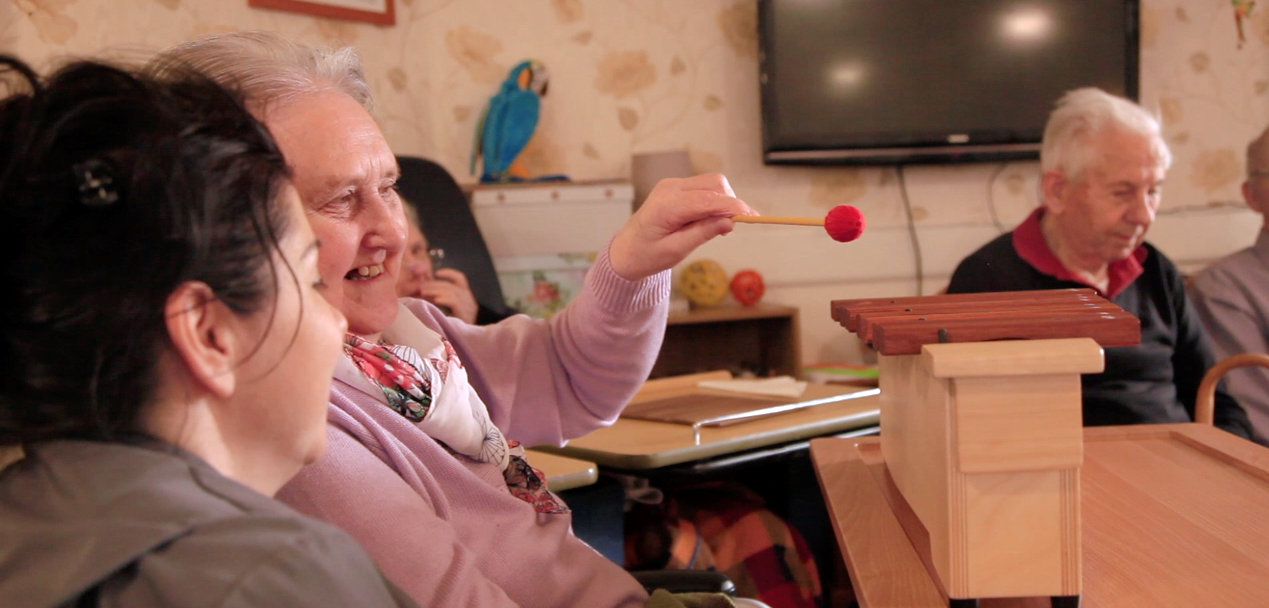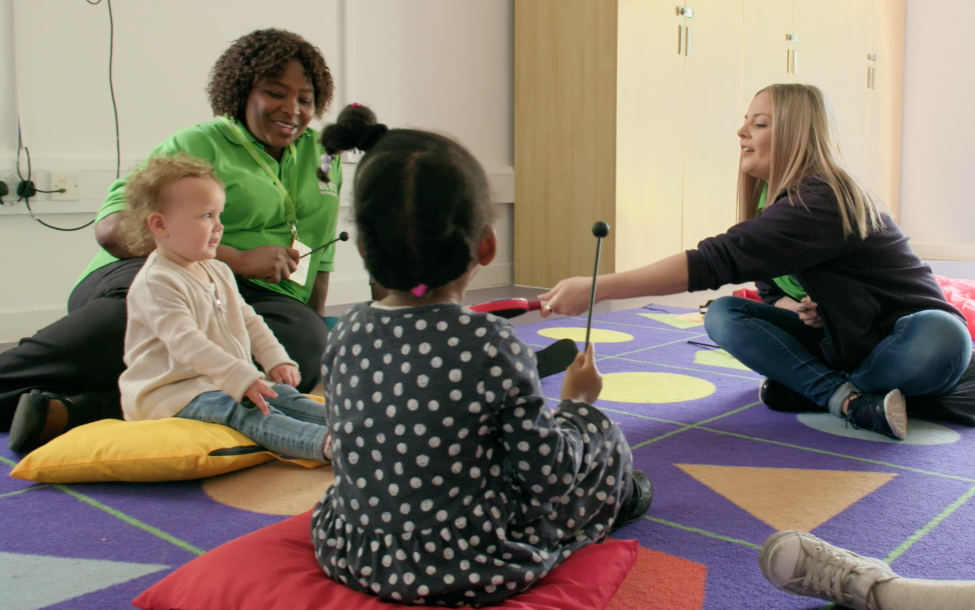
Creativity – artistic, musical, and beyond – has a unique power to engender health and wellbeing benefits. This is the starting point for The Culture Health and Wellbeing Alliance – and it is something our charity, Music as Therapy International, has championed since our very beginning. As a music therapist, I know music can create opportunities for communication, social interaction and emotional expression across the entirety of the life span. But the challenge for me has always been reaching as many vulnerable people as possible who could benefit from this.
Creative therapies are often underrepresented in health and care, and there is a common concern they will be costly to employ for these sectors too. Our answer to the need for more therapeutic music has been skill-sharing. I believe that the projects we deliver are so effective precisely because they are collaborative – designed in partnership with the practitioners who operate on the front lines of care.
‘Music can change the way we care.’ – Partner, The Fields
I always knew I wanted to be a music therapist: I wanted to help vulnerable people, and believed in the power of music to reach people and places words alone could not find. I trained aged 22 – after volunteering in Romania, working with orphaned children in its infamous institutions. My own experience there as an eager and privileged young British woman taught me how the staff who cared for the children day in and day out were often unwittingly undermined by western volunteers, many of whom were only present for short periods of time. A revolving door of volunteers can create confusion for the vulnerable people they are motivated to help - as well as frustrate local caregivers, whose experience and skills can easily get overlooked.
Music as Therapy International – and our skill-sharing approach – was borne from this experience. We developed a project model that, over the years, has proved applicable across diverse contexts and cultures. Our programme history and our partner stories are testament to this work, of which I am immensely proud. Since 2016, our portfolio of activities has included a growing presence in the UK, which has reinforced our belief in the importance of creative care skill-sharing being a two-way street.
Bringing it all back home

In the UK today, the movement to embed music and the arts in care is growing ever faster - particularly thanks to campaigns such as Music for Dementia, and brilliant campaigning organisations like CHWA. Visibility and wider understanding of the relevance of creative therapies in the health and care sectors has come on leaps and bounds since I first trained.
The UK music therapy profession also is far more established than in the countries many of our international Partners work in. However, there are still only around 650 music therapists in the UK – hardly enough to reach everyone who would benefit. The need in the UK is clear; levels of vulnerability outweigh music therapy availability, and this is exacerbated by growing social inequality, and health and care sectors stretched both financially and in terms of personnel.
Upskilling care practitioners to incorporate therapeutic music-making into their daily care provision means more people can access some of the benefits of music, more quickly, more regularly and for a longer period of time.
This is skill-sharing. Our projects typically see a professional music therapist work with care staff over a period of 6-8 weeks to identify where the care staff believe they would like to enhance their practice, how music could be used to do this, and the ways in which the staff themselves will be able to maintain their own use of music after the project ends. The music therapist is then able to share their skills, heavily informed by the experience and local knowledge of the care practitioners. Soon, staff are leading their own music sessions, informed by their newfound music skills and insight. Sometimes this can be misunderstood as the music therapist teaching the staff, top down. But skill-sharing is by definition a two-way street: the staff members are also guiding the therapist.
‘I knew the client group enjoyed music but over the weeks it’s amazing how they remember words, names and instruments.’ – Invernevis House 2019
Care practitioners have expert understanding of the vulnerable people we are working with and the setting itself. To skill-share effectively the needs and realities of our partners’ daily working lives must be at the centre of the training project. After all, a music therapist is typically used to working in 1-1 or small groups for a longer block of time. They are also more often freelancers moving between settings. Having carer practitioners there also means existing relationships with participants are strengthened, rather than starting afresh.
Our latest project, with The Children’s Trust, is a great example of this symbiosis. Sophie Dawson, the music therapist who led the project, noted both how care staff co-designed the training, and how their existing relationships with young people meant the connections made through music were taken to new heights:
“The staff led on what they wanted to gain from the training. The discussions we had in the first week shaped the next five sessions… It was fantastic to see the overwhelmingly positive reactions from the pupils. It was lovely, and important to note, the relationship the carers have with the pupils. This is what made the groups special.”
Staff commented on how music would strengthen their wider care practice, particularly enabling them to provide their own music sessions when a music therapist was not available. Mel, The Trust’s Head of Therapy, noted the importance of autonomy and leadership for her staff:
“Our Staff felt enabled to develop their own skills and autonomy in leading therapeutic music sessions. The project instilled a positive sense of being together and community. We were surprised how quickly momentum was built and the message has already been spread to other residential houses who want to get involved.”
Despite this project being a wonderful way to emerge into 2021, it won’t come as a surprise that the pandemic forced us to think hard about how to sustain our work. We work directly with care providers, whose clients are some of the most vulnerable people in society. With residential care facilities on lockdown, and schools and nurseries disbanded, training projects were simply not an option. In this moment, we decided that we had to focus purely on supporting ourskill-sharing partners, and the sustainability of their music programmes.
The pandemic has meant that for the first time in a long time care professionals have begun to get some of the recognition they deserve from wider society. We all have a lot to learn from the care profession – something our skill-sharing projects have always upheld. If the pandemic has shown us anything, those on the frontlines are the beating heart of care. It would be a major misstep not to capitalise on this incredible resource of experience.

